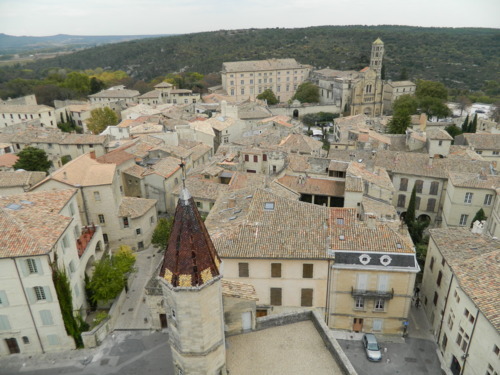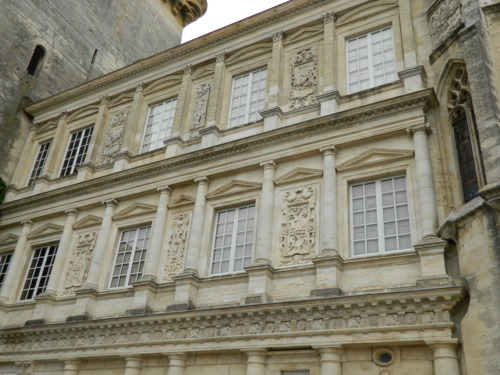On the road
Really on the road now, in search of traces of various people in big cities, small towns and tiny villages in Provence.
I’m making connections I didn’t expect, too, just by being here.
A simple example, yesterday on the bus to Marseille (because I couldn’t face driving in, and boy was that the best decision I ever made) I sign a sign in the direction of Luynes.
Now, Luynes is the family name of d'Albert, La Maupin’s lifelong friend about whom I’ve bored you before.
It is also, though I didn’t know this before, a small town right next to Aix-en-Provence, where I now sit typing away and trying not to let honey drip off a piece of baguette and onto the netbook.
I though d'Albert’s family hailed from up near Tours, and indeed they do - or did, officially - from the time that his grandfather was ennobled by Louis XIII.
But before then, they were here: the Albert family is Provençale through and through, which also helps to explain his close association with the Dukes of Uzès.

And therein lies a story, or rather many stories, but the most critical one is that in August 1700, d'Albert and his two friends, the sons of the Duc d'Uzès, were part of a duel with the Comtes Rantzau and de Schwartzenberg over the favours of the Duches of Luxembourg. The got into all kinds of trouble, including prison and exile - you may recall that’s one reason I visited the Conciergerie in Paris - and later La Maupin threatened to blow out the Duchess of Luxembourg’s brains if she didn’t leave d'Albert alone.
And even later, one of the younger Uzès was married to the woman with whom La Maupin spent her final years: the Marquise de Florensac.
So they are minor but constant characters in La Maupin’s life and in the novel, and there’s a lot of room for tension there, so I’m currently fleshing them out a little more. The family and the title were immensely important in the court of the SUn King and for generations before and right up to the Revolution.
Which is why a day or so ago I visited Uzès, the town - their town, which is gorgeous, by the way - and their ancestral home, the Duchy, which is now restored and accepting visitors.

At which point I heard yet another story which has confused me: that the 7th Duke of Uzès was exiled from Versailles in in the 1720s for a fatal duel with Comte Rantzau. Again, are the stories mixed up? Or are both true?
Will have to find out.
In other news, I checked my manuscript and I already have La Maupin introducing herself as Julie-Emilie in two different spots, so I’m not as dumb as I thought I was but a great deal more absent-minded.